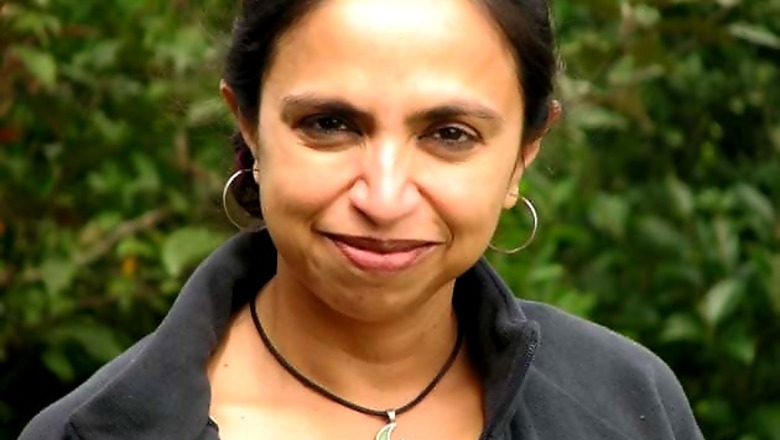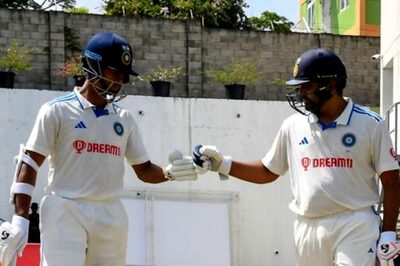
views
New Delhi: DearCinema brings to you a few voices that define the Indie scene in India today, ruminating over what independent cinema means to them. Straight from the horse's mouth. Following the eloquent Q [Indie Head Rush: By (Q)aushiq Mukherjee], in the second in the series, Shonali Bose who directed the national award winning film Amu and won the Sundance Institute– Mahindra Global Filmmaking Award 2012 writes about the compromises she refused to make while treading the indie tightrope.
I taught for a year at the New York Film Academy in Los Angeles. And this is what I told my students. Be very sure, be very committed, be very passionate about your films – otherwise choose another line of work. It's one of the toughest professions in the world!
What does it mean to be an independent filmmaker whether in LA or in Bombay?
To my mind, it's being a writer-director or filmmaker who does not compromise. It's being a filmmaker who will tell the story they want to tell and cast it the way they want to cast and use music/songs as they see fit – and not according to the diktat of producers/financiers/studios.
It took me 3 years to raise money for my debut film Amu. No one wanted to touch it because it was on the most taboo issue – the 84 genocide (euphemistically called riots) in the capital city. It's not that I did not get any financial offers – but I refused to compromise creatively or politically. One offer was to have songs in the film. But for me as a director they wouldn't work. Amu was a tight narrative drama – which would have been weakened by breaking into songs. My current film has 5 songs. It's not about a blanket attitude about songs. It's what the script and story and style demand.
The second offer was to take a leading male star. I refused point blank. The male lead in Amu, Kabir, was actually second to the female protagonist (much in the way heroines are second to heroes in almost all Hindi films). The central journey and quest belonged to the female protagonist. She could not be shadowed by a male star. And finally – to take out all references to the government organizing the attacks. Over my dead body! I would rather not make the film than make these compromises. So I stuck to my guns and raised the money dollar by dollar retaining complete creative and political control.
When I finished the final mix of Amu and had the first print – it was such a sense of achievement. The film was exactly how I wanted it to be and truly an independent film. Just as I was going to uncork the champagne a filmmaker friend said – not so soon – the battle has only just begun. Finishing the film is the least of it – it's releasing it! And how true that was. This is the other big problem with indie films – they do not come with guaranteed distribution and release dates like studio films do. At that time – in 2004 – multiplexes were only just coming in. This is a phenomenon which has made it possible for small films to get theatrical release. But even before this step – is another hurdle and that is the censor board. And maybe this hurdle is the same for all filmmakers – independent or otherwise. All I know is that Amu – which has no sex or violence was given an 'A' certificate – because the board said "why should young people know a history that is better buried or forgotten" – when mainstream hindi films filled with violence and lewd dances which I certainly wouldn't want my children to watch – were getting a 'U'. Completely politically motivated 'A' certificate essentially assured that the film cannot be seen by the majority of audiences – as it can never release on television.
The final hurdle was P&A budget (prints and advertising). Shringar agreed to release the film because they really liked it themselves but they didn't have faith in Indian audiences. They were not willing to spend anything on it! With utmost difficulty I raised 10 lakhs and released 7 prints. We could only do 3 cities at a time. And yet in the 3 theaters in each city it ran houseful for 3 months. For me, as an independent filmmaker – I saw with my own eyes the responses of audiences to the film. They welcomed a piece of good cinema. But financiers and distributors don't have faith in our audiences. They will only put in P&A if there's a star.
My next script Margarita, with a straw – may have received one of the most prestigious awards in the world – that too for a script – but its still an uphill battle to raise money for it. I already turned down a huge studio because they said they would fund it if an A list bollywood star played the lead. But the role of the 18 year old female protagonist is such that a Kareena or Priyanka (who I would be happy to cast in some other film or role) don't fit it. And again I refuse to make that compromise.
Of course there is progress because you have Aamir backing unconventional films (and hats off to him for that) and Anurag being recognized and given the respect long due to him from financiers and distributors and Dibakar making his kind of cinema…..but these are too few and far between. It's not that we lack the talent to shine on the world stage of cinema like Iran does. It's that good quality cinema sans stars still doesn’t get the backing it deserves.




















Comments
0 comment